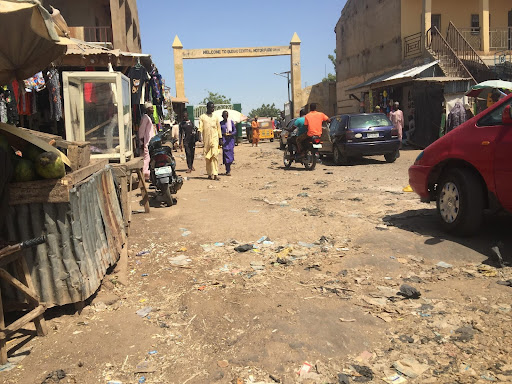Zamfara Groans As Lead Poisoning Spreads
Residents in Zamfara, Northwest Nigeria have to contend with ravaging banditry, illegal mining activities, and now, lead poisoning.

Misfortune is hitting communities in Zamfara, Northwest Nigeria, from all corners, as bandits have been on the prowl, killing, raping, and pillaging. Amid the tragedy, Bagegga and other communities in Anka Local Government Area, are witnessing a sweeping pang of deaths by lead poisoning.
In spite of the ongoing banditry attacks, citizens of Zamfara state have more reasons to groan as their access to quality water and air is under threat of prevalent lead poisoning.
Alhaji Shehu Maru, like many others, feels the pain close to home. His friend lost three children while his uncle lost two children and a wife. “We are still being exposed and it is not looking like it is going to end,” he laments to HumAngle.
Mining in Zamfara is mostly done on an artisanal scale and illegally by locals who have lost access to farmlands due to banditry attacks. Some people also engaged in mining before spiralling into violence.
The use of chemicals, explosives and the dust emitted from the rocks and other minerals build up unsafe particles that contaminate the air and drinking water. Lead is the chief culprit.
In March 2010, Medecins Sans Frontieres (MSF) discovered an epidemic of Lead poisoning in Zamfara, linked to the death of 400 children.
The source was traced to environmental exposure to lead from the processing of lead-rich ore mined by artisans in the state for Gold extraction which necessitated immediate remediation of the affected villages.
Experts reported that lead poisoning, as in the case of Zamfara, can persist in the environment for up to 15 years. There are also other long-term health problems such as permanent learning and behavioural problems and brain damage.
Lead, for instance, is known to bio-accumulate and propagate within the ecosystem, giving rise to cancer-causing cells popularly called oncogenes.
As water is an important aspect of mining, most times, it is done close to streams and rivers. Gold requires large water which is usually polluted by these chemicals and in turn passed down to community water sources.
Explaining how the poisonous chemicals come in contact with women and children, Maru said, “What we did before was after digging out the mineral, we take them home to our wives at home to grind as against using machine and engines.
“Unfortunately, we did not know that in Bagegga (a community), we came across a rock that is highly poisonous. Women and children were pounding it at home and that was how they got infected.”
Maru, his voice thick with regret, explained that at first, the villagers thought it was malaria, not realising that their water had been contaminated with the chemicals.
He said, “People began to fall sick and we tried treating it locally until the government and foreign aid came. By then, a lot of people had already died, including people close to me.”
HumAngle reports that while experts decry the effects of mining on land degradation and how the activities provide hideouts for bandits. Some villagers, like Jalo Sani, are aware of the damage.
Sani, a local miner across the sites in Kadauri Maru and Anka forest noted that the poor management of mining sites by groups and the indiscriminate mining were major contributors to the problem.
He said, “when you come here you come to Shugabanin Daba (a name for field leaders), they will measure what you can afford and give you a field. You dig the place, take out the gold, sand and everything else and then move on to the next field.”
Sani added that these fields and large tranches, with different branches linking different places, are alleged to be in use by bandits to escape air raids by the government or used as armouries for bandits.
The use of explosives has also increased land degradation and has displaced communities; often miners lose their life at the cost of using these explosives.
Oga Lawali a rural miner said “when we dig we dig with our diggers, there are trenches we dig for weeks and months and we come across large rocks so we can only bomb them.
“On this job, we have lost friends and fellow miners because sometimes we stay down there for weeks, day and night. There are a lot of risks involved,” Lawali said.
Support Our Journalism
There are millions of ordinary people affected by conflict in Africa whose stories are missing in the mainstream media. HumAngle is determined to tell those challenging and under-reported stories, hoping that the people impacted by these conflicts will find the safety and security they deserve.
To ensure that we continue to provide public service coverage, we have a small favour to ask you. We want you to be part of our journalistic endeavour by contributing a token to us.
Your donation will further promote a robust, free, and independent media.
Donate HereStay Closer To The Stories That Matter




